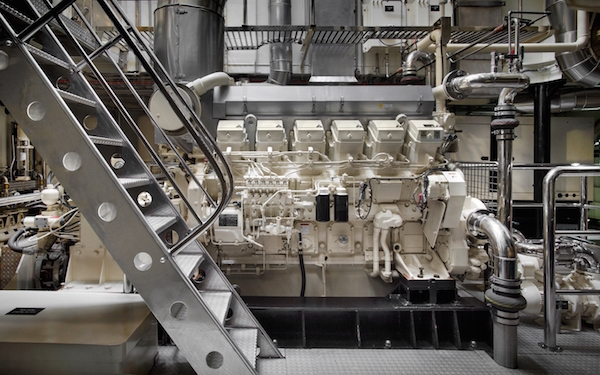Trouble in the engine room?
Reflections on a chief engineer's candid comments on the engineering sector.…
Recently SuperyachtNews asked an experienced chief engineer of a 62m motoryacht, who wishes to remain anonymous, to comment on the state of the engineering sector and how superyacht engineers were being trained up. His response was candid to say the least.
Initially referring to the new engineering training structure for small vessels, outlined in MIN 524, he is deeply worried about the consequences of an easing syllabus. “Training and schooling the world over seems to be dumbing down, and this is another example,” he explains. “Surely to be able to function properly you have to have a dedicated apprenticeship behind you?”
This engineer believes that there are still a lot of engineers out there who don’t understand the importance of having a solid base upon which they can continue training at sea to become competent in all areas. “They want to be their own boss and go on smaller boats, learning, we hope, by their mistakes,” he elaborates. “Some go on to become competent, others not. That seems to be a bit hit and miss to me."
He offers a case in point: “When I took over my current vessel at the end of her yard period, the yard engineers were all looking at me like they were thinking, ‘I have to be polite to this engineer even though he probably knows nothing.’ I found out why when I did some basic diagnostic work on a generator supply breaker that was failing.
“A very respected electrical project manager professed to the technical manager of the build team to be impressed with my ability. I remarked how easily impressed he was and the manager summed it up with the comment, ‘They tell me stories of stupid engineers all the time’.”
This common attitude towards superyacht engineers, has lead this chief engineer to question the average ability of superyacht engineers. "We can't be doing very well if we can’t impress boat builders, can we?" he asks. “We are supposed to be the maintainers, the fault-finders, the operators and troubleshooting diagnostic heart of the vessel."
While MIN 524 has been hailed by many in the training and engineering sectors as an opportunity for engineers to have more on board training, and less learning based on how to pass exams, others disagree, claiming it is a lowering of standards. Perhaps the problem lies more in general attitudes within the industry that perpetuate low expectations.
“I am a 50-year-old engineer on rotation, and because I have served this amount of time I feel a rotation position such as this is merited,” the chief engineer reflects. “I have been in the superyacht industry since leaving the Royal Navy in 1991. I have a Class 2 Unlimited ticket. I keep thinking about doing my Class 1 but I have no time and see no point; the way the certificates are going, before I retire I should be able to run Eclipse!”
NEW: Sign up for SuperyachtNewsweek!
Get the latest weekly news, in-depth reports, intelligence, and strategic insights, delivered directly from The Superyacht Group's editors and market analysts.
Stay at the forefront of the superyacht industry with SuperyachtNewsweek
Click here to become part of The Superyacht Group community, and join us in our mission to make this industry accessible to all, and prosperous for the long-term. We are offering access to the superyacht industry’s most comprehensive and longstanding archive of business-critical information, as well as a comprehensive, real-time superyacht fleet database, for just £10 per month, because we are One Industry with One Mission. Sign up here.
NEW: Sign up for
SuperyachtNewsweek!
Get the latest weekly news, in-depth reports, intelligence, and strategic insights, delivered directly from The Superyacht Group's editors and market analysts.
Stay at the forefront of the superyacht industry with SuperyachtNewsweek




